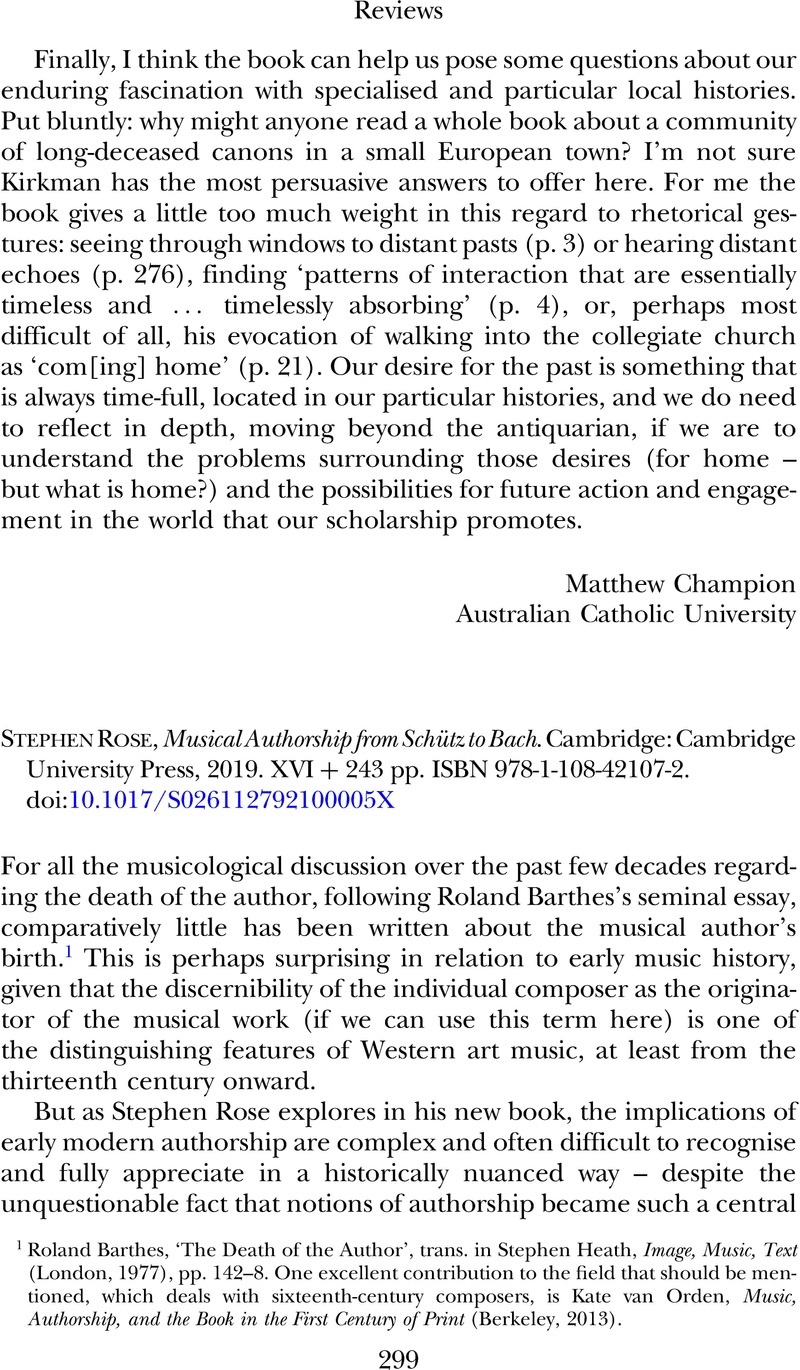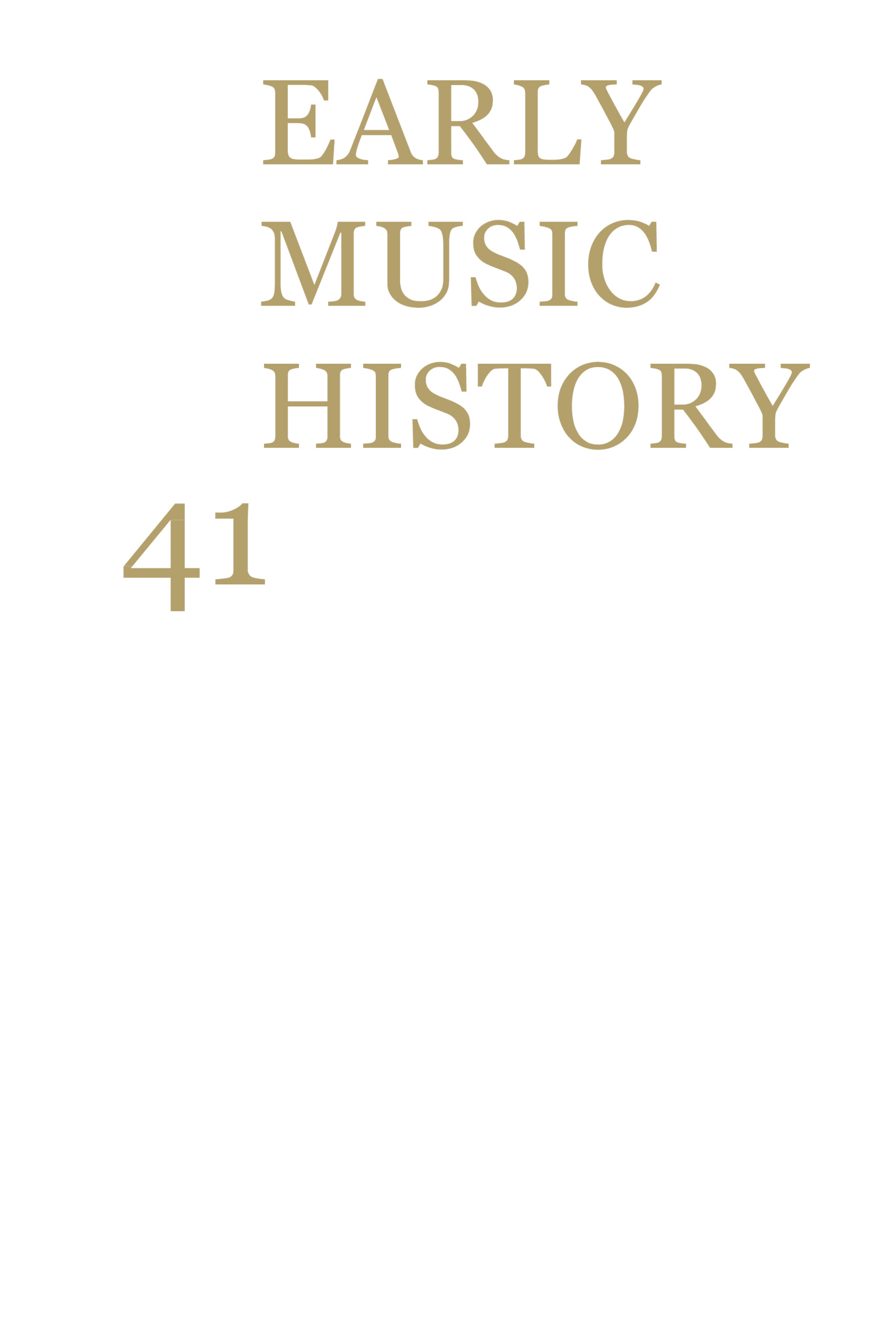No CrossRef data available.
Article contents
Stephen Rose, Musical Authorship from Schütz to Bach. Cambridge: Cambridge University Press, 2019. XVI + 243 pp. ISBN 978-1-108-42107-2.
Review products
Published online by Cambridge University Press: 23 February 2022
Abstract

- Type
- Reviews
- Information
- Copyright
- © The Author(s), 2022. Published by Cambridge University Press
References
1 Roland Barthes, ‘The Death of the Author’, trans. in Stephen Heath, Image, Music, Text (London, 1977), pp. 142–8. One excellent contribution to the field that should be mentioned, which deals with sixteenth-century composers, is Kate van Orden, Music, Authorship, and the Book in the First Century of Print (Berkeley, 2013).
2 Daniel Melamed, ‘Constructing Johann Christoph Bach (1642–1703), Music & Letters, 80 (1999), 345–65, at p. 346.
3 ‘damit im wiedrigen nicht etwas ihnen/und dem Autori selbsten/wieder seine Schuld/vor gehörigen Dancke ein unverhoffer Spott zuwachen möge’. Heinrich Schütz, Symphoniae Sacrae II (Dresden, 1647). Translated in Gregory Johnston, A Heinrich Schütz Reader: Letters and Documents in Translation (New York, 2013), p. 148.
4 Rose, p. 17. Laurence Dreyfus, Bach and the Patterns of Invention (Cambridge, Mass., 1996).
5 For an example of this in mainstream journalism see Ivan Hewett, The Telegraph <https://www.telegraph.co.uk/culture/music/classicalmusic/9634354/Vivaldi-remixed-classical-music-reinvents-itself.html>. For a more nuanced scholarly discussion, see George Buelow, ‘The Case for Handel’s Borrowings: The Judgment of Three Centuries’, in S. Sadie and A. Hicks (eds.), Handel Tercentenary Collection (London, 1987), pp. 61–82.
6 Rose, p. 50.
7 Adam Smith, An Enquiry into the Nature and Causes of the Wealth of Nations (London, 1776), ch. III, II.iii, reprinted in The Glasgow Edition of the Works and Correspondence of Adam Smith, ed. R. H. Campbell and A. S. Skinner, i (Oxford, 1976), p. 331.
8 Christoph Wolff and Arthur Mendel (eds.), The New Bach Reader (New York, 1999), p. 345.
9 Rose, p. 116.
10 See Stephen Rose, ‘Protected Publications: The Imperial and Saxon and Saxon Privileges for Printed Music, 1550–1700’, Early Music History, 37 (2018), pp. 247–313.
11 See Hansjörg Pohlmann, Die Frühgeschichte des musikalischen Urheberrechts, ca. 1400–1800: Neue Materialien zur Entwicklung des Urheberrechtsbewusstseins der Komponisten (Kassel, 1962).





